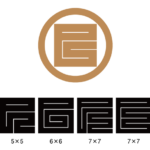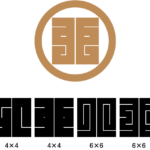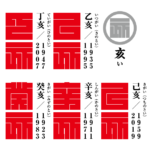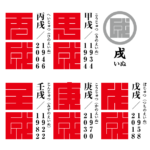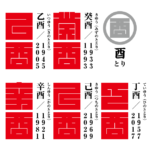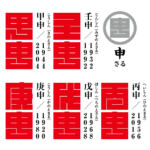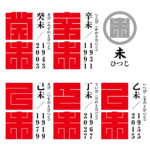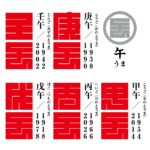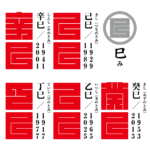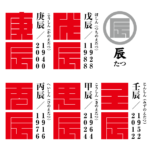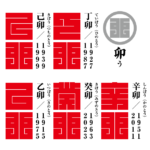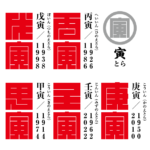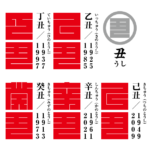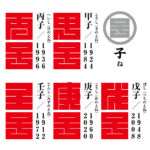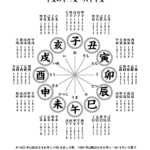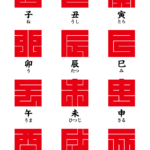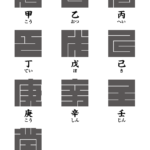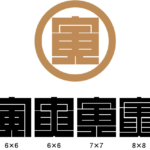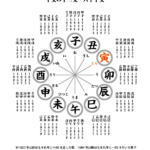角字で十干(じっかん) 十二支(じゅうにし) 干支(えと)。
干支(漢字表記)を角字で表現してみました。
角字とは、江戸時代に誕生した、正方形のグリッド内にほぼ水平・垂直のラインのみで文字(漢字)が表現されるグラフィックアートです。
シンプルで有りながら、奥深い「角字」は多くの日本人を魅了し、お祭りで着る半被や印半纏(しるしばんてん)と言われる着物や、商標、印鑑、家紋、看板デザインなどに今日まで数多く使用されてきました。
There is a style of penmanship called “Kakuji” in Japan. Edo-born Kakuji is a graphicart that expresses letters (kanji) with almost horizontal and vertical lines only.
The design which bases on many straight lines seems simple, or too plain even at its first glance; yet this beautiful artistic penmanship that encompasses the aesthetic of the Japanese in the Edo era, also known as “Iki”, and playfulness has long been inherited to this day, thanks to the masteries’ long years of efforts in training and refinement.
Kakuji with its simplicity and depth is used for designs such as trademark, hanko stamp, family crest and signboard.
